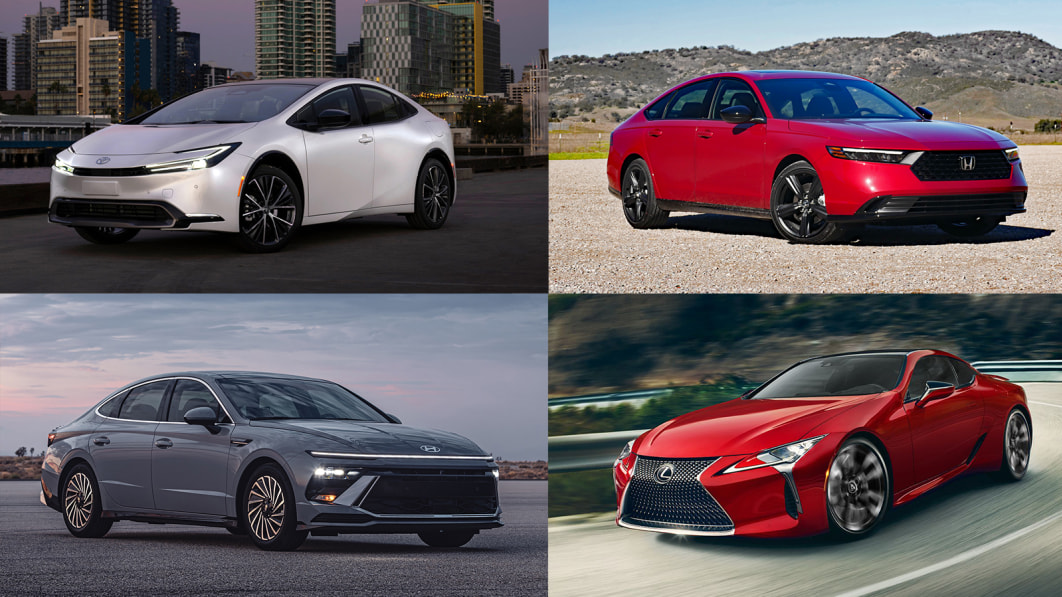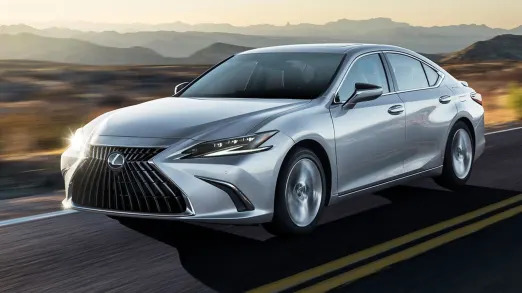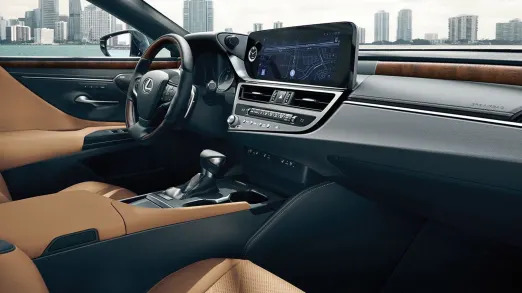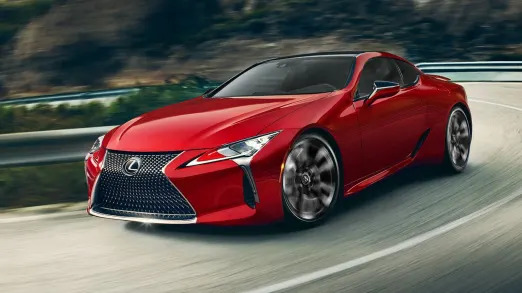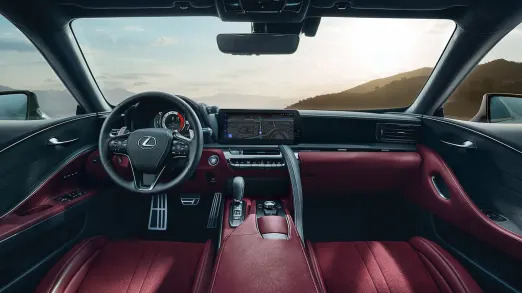There are two rather dominating trends in the car business: full electrification, and the shift to SUVs. Still, we aren’t in a place where EVs are the perfect solution for everyone, and similarly, many people still prefer to have a lower, sleeker, and frequently lighter and more nimble sedan or fastback hatch; in other words, “cars.” So we’ve rounded up the best hybrid cars still on the market, as well as even a 2025 model that’s just on the verge of launching.
Now we want to also specify that this list is just sedans and the odd hatchback, and it’s just conventional hybrids. So this will not include plug-in hybrids, which are like a conventional hybrid, but have a large enough battery that they can be plugged in and charged for significant amounts of electric-only driving. It also won’t include the myriad “mild” hybrid vehicles that have a small electric motor that just provides slight assist from a stop and allows for quicker and smoother engine shut-off at stops. For reference, the hybrids we’re talking about are like what the Prius has been from the start (which is also a part of this list).
Yeah, so it’s a bit confusing, but while overlooked, traditional hybrids are still an excellent way of saving gas — be it for economic or environmental reasons. They’re increasingly even the most compelling versions of their respective model lineups, which wasn’t true in the past.
Best Small Hybrid Cars | Best Midsize Hybrid Cars | Best Luxury Hybrid Cars
Best small hybrid cars
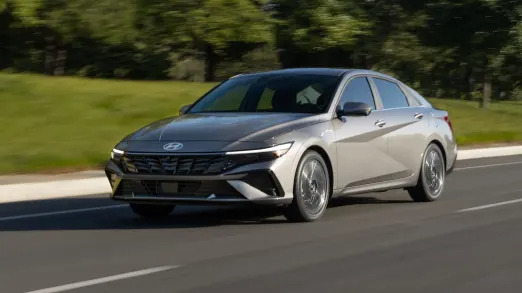
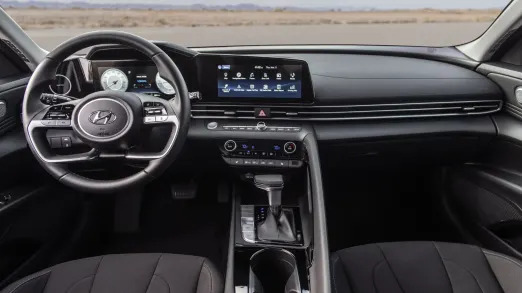
Hyundai Elantra Hybrid
Pros: There aren’t many compact hybrids left, and it’s one of the best; affordable; normal driving experience; spacious interior
Cons: Styling may be a bit overboard.
EPA-estimated fuel economy: 50 mpg combined and 54 mpg combined (Blue trim)
Read our Hyundai Elantra Hybrid Review
The 2023 Elantra Hybrid is one of your best bets for a compact hybrid. Beyond getting exceptional fuel economy of 50 or 54 mpg combined, depending on trim level, the Elantra Hybrid stands out by being awfully normal to drive. There’s no droning electronically controlled CVT mooing as with Toyota system and the engine doesn’t rev even if your foot isn’t on the accelerator like Honda’s. The reason is Hyundai uses a traditional six-speed automatic transmission for its hybrid system. The Elantra also stands out because, well, just look at the thing. It’s awfully wild with all those sharp creases everywhere, dominant grille and pointy rear end. The interior, meanwhile, is more conventional by hybrid standards (for the better), featuring a look that is modern and sporty. Its infotainment and safety technology are also top notch.
(Refreshed non-hybrid 2024 Elantra pictured above left)
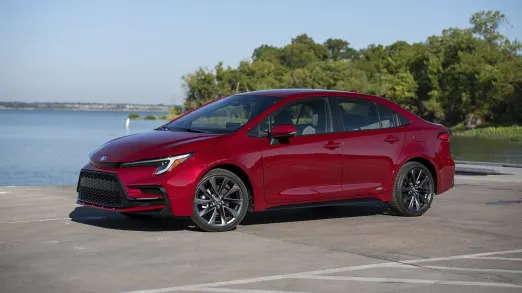
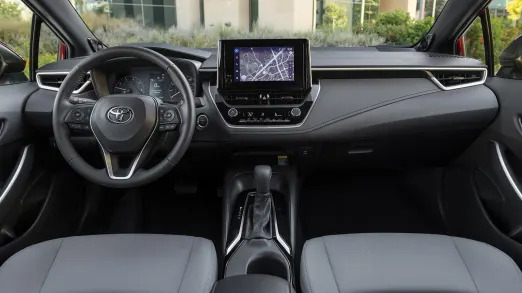
Toyota Corolla Hybrid
Pros: Affordable; subtle looks; available all-wheel drive
Cons: Noisy powertrain; low power; lackluster interior
EPA-estimated fuel economy: 50 mpg combined (LE FWD, XLE FWD); 48 mpg combined (LE AWD, XLE AWD); 47 mpg combined (SE FWD, Nightshade FWD); 44 mpg combined (SE AWD, Nightshade AWD)
The Toyota Corolla hybrid was given a fairly moderate update for 2023, and with it comes enough reason to recommend checking it out. Horsepower, while still modest at 134, is increased from before, and certainly welcome. But more importantly is the addition of all-wheel drive availability, which is still relatively unusual among small sedans. Then there’s the affordability. The base Corolla LE hybrid starts at less than $25,000 (though the Elantra Hybrid above is only a few hundred more). The all-wheel-drive version is just shy of $1,000 more, and is thus one of the most affordable all-wheel-drive vehicles you can buy in America, sedan, hybrid or otherwise. Factor in combined fuel economy ranging from 44 to 50 mpg, the Corolla hybrid is an impressive value. The only downside is an interior that feels a little plain and low-end compared to the aforementioned Elantra, and the powertrain is noisy, particularly when wringing the most out of those 134 horses.
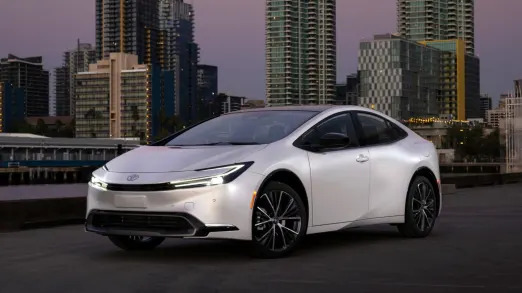
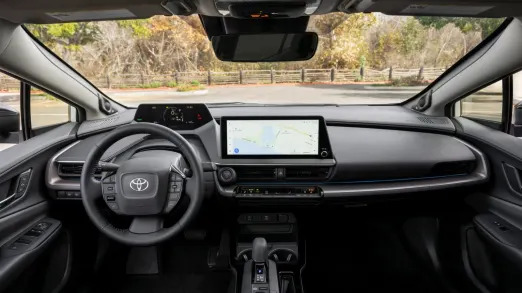
Toyota Prius
Pros: Available all-wheel-drive; shockingly stylish; good power; hatchback versatility; it’s synonymous with hybrids
Cons: Odd instrument layout; tight backseat headroom
EPA-estimated fuel economy: 57 mpg combined (LE FWD); 54 mpg combined (LE AWD); 52 mpg combined (XLE FWD, LTD FWD), 49 mpg combined (XLE AWD, LTD AWD)
The old Prius made it to this list in the past basically because better competitors had dropped out of the segment. That’s not the case with the new Prius. First off, it looks good. Real good. It’s got a sleeker windshield rake than a lot of modern supercars, and the lines are clean and taut, even to the tail. Then there’s the powertrain, which actually has power now, though it’s still a bit noisy. The front-drive version makes 194 horsepower, and the all-wheel-drive one makes 196. And yes, it is available with all-wheel-drive via a second motor at the rear. On top of having power that makes it nippy off the line, the Prius even handles decently well. It’s no sports car, but it’s sportier than a number of hybrids and compacts in general. The interior is less strange, too, and the infotainment is vastly improved. That’s not to say there aren’t oddities, such as the deep-set instrument cluster. Plus, the price for the sweet looks is reduced rear headroom and rear cargo space. But overall, the Prius has gone to one of the least appealing hybrids available, to one of the most in one generation.
Best midsize hybrid cars
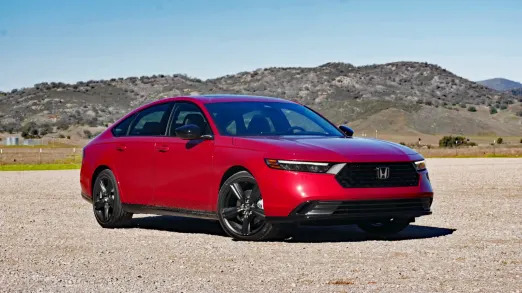
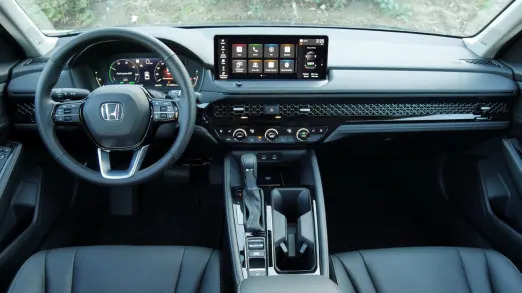
Honda Accord Hybrid
Pros: Class-leading back seat and trunk space; electric-like power delivery; best-in-class ride and handling
Cons: Iffy fuel economy in the otherwise desirable Sport and Touring trims
EPA-estimated fuel economy: 48 mpg combined or 44 mpg combined (Sport, Touring)
Read our Honda Accord Hybrid Review
The Honda Accord is our top choice among midsize family sedans, and that doesn’t change when it comes to hybrid versions. In fact, the Hybrid is the Accord version we recommend first as its superior fuel economy and agreeable electric-like power delivery don’t come with substantial tradeoffs. Yes, it’s more expensive than a regular gas-only Accord, but like the other hybrid sedans here, the price premium is manageable given the gas savings. Like every Accord, though, the Hybrid stands out with a truly colossal amount of interior space, a well-made interior, and a driving experience that sets a just-right balance between ride comfort and handling response. And unlike other Hondas, including the CR-V Hybrid, the Accord has a newer, more user-friendly tech interface.
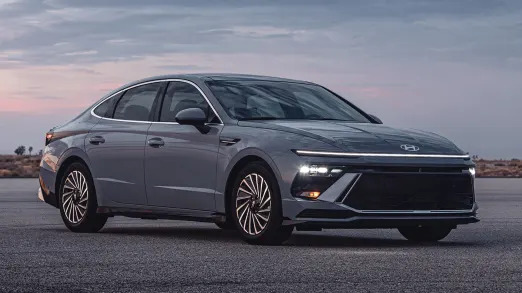
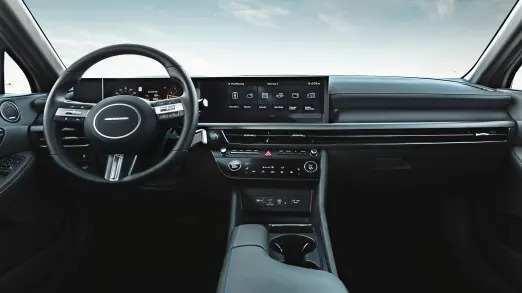
Hyundai Sonata Hybrid
Pros: Excellent infotainment and safety technology; bold style; drives “more normal”
Cons: OK, so maybe the styling’s too bold
EPA-estimated fuel economy: 52 mpg combined (Blue trim, 2023) or 47 mpg combined (Other trims, 2023)
Read our Hyundai Sonata Hybrid Review
For all the many practical, space-related areas where the Accord Hybrid lead the segment, the Hyundai Sonata Hybrid is basically just a hair or two behind it. At the same time, its bold styling and classy interior help it stand out in non-practical ways — its design may not be for everyone, but Hyundai is always at its best when it’s pushing the envelope, and this latest Sonata is no different. Besides its design, the Sonata Hybrid is a clear standout in terms of infotainment and safety technology. Although the list of features between it and its competitors are similar, Hyundai’s execution and user-friendliness are superior. Many are also likely to prefer driving Hyundai’s hybrid powertrain. It uses a traditional six-speed automatic, meaning it drives “more normal” with stepped gear changes instead of the Camry’s e-CVT or the Accord’s unusual, too-complicated-to-describe-here setup.
The updated 2024 model will continue to have a hybrid powertrain, but fuel economy numbers have not yet been announced. They should remain close to the 2023 model at 53 mpg for the base Blue trim, and 47 mpg combined for others.
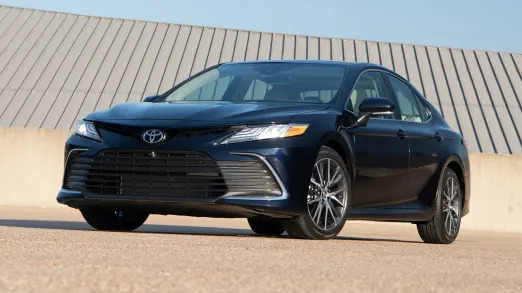
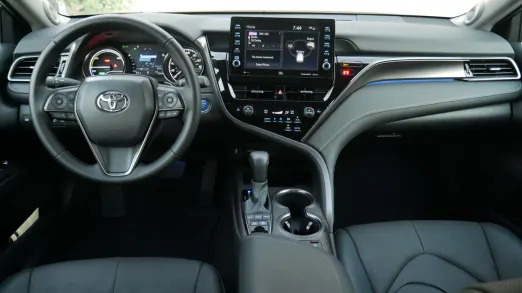
Toyota Camry Hybrid
Pros: Different “flavors” of Camry with more luxury- and sport-oriented models
Cons: Antiquated infotainment system; less refined power delivery
EPA-estimated fuel economy: 52 mpg combined (LE trim 2024) or 46 mpg combined (Other trims, 2024)
Read our Toyota Camry Hybrid Review
The Camry would definitely be our third choice in this group of midsize hybrids, but that’s because the Accord and Sonata do most things just a little better. The Camry Hybrid is still really good. Indeed, it’s the pick of the Camry litter. Its electric motor adds the low-end pull the base four-cylinder lacks, while also smoothing things out considerably. Furthermore, the battery’s placement under the back seat lowers the car’s center of gravity and lessens the front weight bias, making for improved dynamics around corners. A heavy right foot still results in a fair bit of droning from the powertrain, but it is better than past Toyota hybrid efforts, as is the brake-pedal modulation. That you can get it in the sportiest, more luxurious XSE along with a variety of luxury- and sport-oriented “flavors” is icing on the cake. Importantly, it can get the same fuel economy as the Prius while being a wildly more refined and just better car.
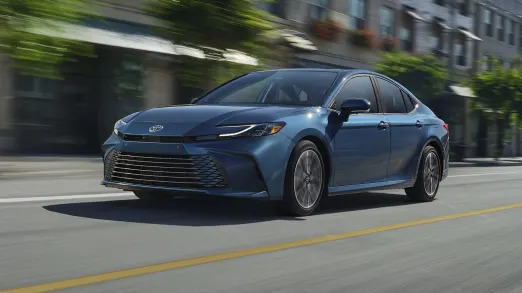
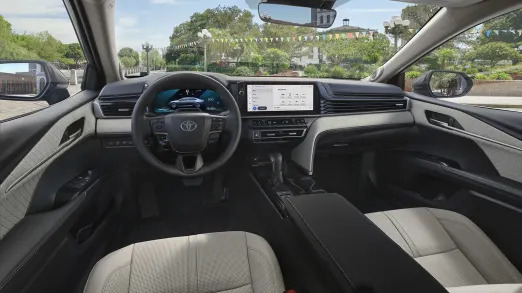
And if you’re willing to wait a little bit, the 2025 Camry will be hitting dealers in the spring of 2024. It will feature fresh styling inside and out, along with welcome updates including Toyota’s most current infotainment system, as well as more power and available all-wheel drive. The front-drive model will make 225 horsepower, and the all-wheel-drive version will make 232 horsepower.
Best luxury hybrid cars
Lexus ES 300h
Pros: 44 mpg from a large luxury car is unheard of; surprisingly good to drive; impeccable interior quality
Cons: Annoying tech; slow for a luxury car; droning powertrain
EPA-estimated fuel economy: 44 mpg combined
Lexus is literally the only luxury car brand that sells conventional hybrids these days, so the fact that it sweeps the podium here should not be taken for anything greater than it is. Nevertheless, the ES 300h is a terrific luxury car choice for those prioritizing fuel economy. Not only does it provide 44 mpg combined, which is a sky-high number only plug-in hybrids could beat, it’s quite a large luxury car. Similarly priced sedans are almost all much smaller, meaning as a value play, the Lexus ES 300h makes a lot of sense. Lexus’ superior reliability and resale value reputations builds its case even further. The down side is that the ES suffers from frustrating infotainment controls and a powertrain that, while thrifty, is slow and a bit unrefined for a luxury car.
Lexus LC 500h
Pros: Just look at the thing; beautiful interior; exceptional fuel economy for a luxury GT
Cons: Hybrid power delivery can seem a bit weird in a car like this
EPA-Estimated Fuel Economy: 29 mpg combined
Even if every luxury car brand sold a hybrid, there’s a very good chance the LC 500h would still end up on this list. It’s a gorgeous luxury GT with an interior exquisite enough in design and quality to make up for the fact that its tech interface makes you want to pull your hair out. Although the regular LC 500’s 5.0-liter V8 will always hold a special place in our hearts, there’s no denying that the LC 500h and its 29 mpg combined is a far more responsible choice — especially for a car that’s comfortable and pleasant enough to legitimately drive on a daily basis or on long road trips. The hybrid powertrain is also impressive enough that it won our 2018 Technology of the Year award. This is as close as you can get to a guilt-free luxury GT.
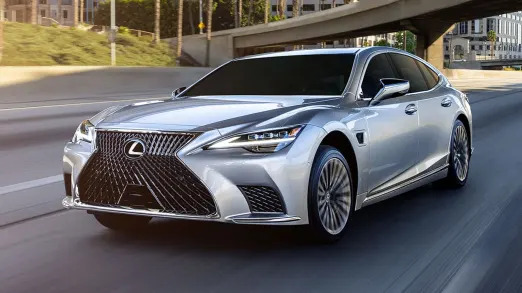
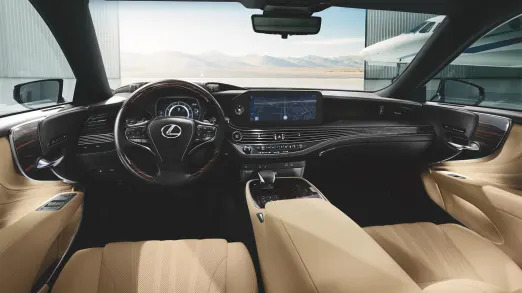
Lexus LS 500h
Pros: Distinctive and exquisitely made interior; more engaging to drive than you’d think; exceptional fuel economy
Cons: Less powerful than other flagship luxury sedans; less sophisticated infotainment
EPA-estimated fuel economy: 28 mpg combined (RWD) or 26 mpg combined (AWD)
Read our Lexus LS 500h Review
The Lexus LS long ago got a reputation as a dull-as-ditch-water luxury sedan, but that’s just not the case with the latest version. It actually has the same powertrain and shares its rear-wheel-drive platform with the LC 500h, and although it isn’t as sharp as that, this isn’t the Grandpa’s couch that previous LS generations were. We legitimately enjoy driving the LS more than most versions of the BMW 7 Series (imagine saying that 15 years ago!), and that includes the compelling LS 500h hybrid. This does make up for the fact that this hybrid Lexus’ fuel economy isn’t that much better than the gas-only BMW 740i, but that says more about BMW’s engineering wizardry, as no other flagship luxury sedan comes close to either. You’ll also be dealing with Lexus reliability, and although the brand’s design isn’t always for everyone, the LS generally appears more athletic than its more conservative, stately rivals. Its “Signature Spindle Grille” even seems subtle compared to the faces of the flagship BMW, Audi and Genesis sedans.
Related video:


